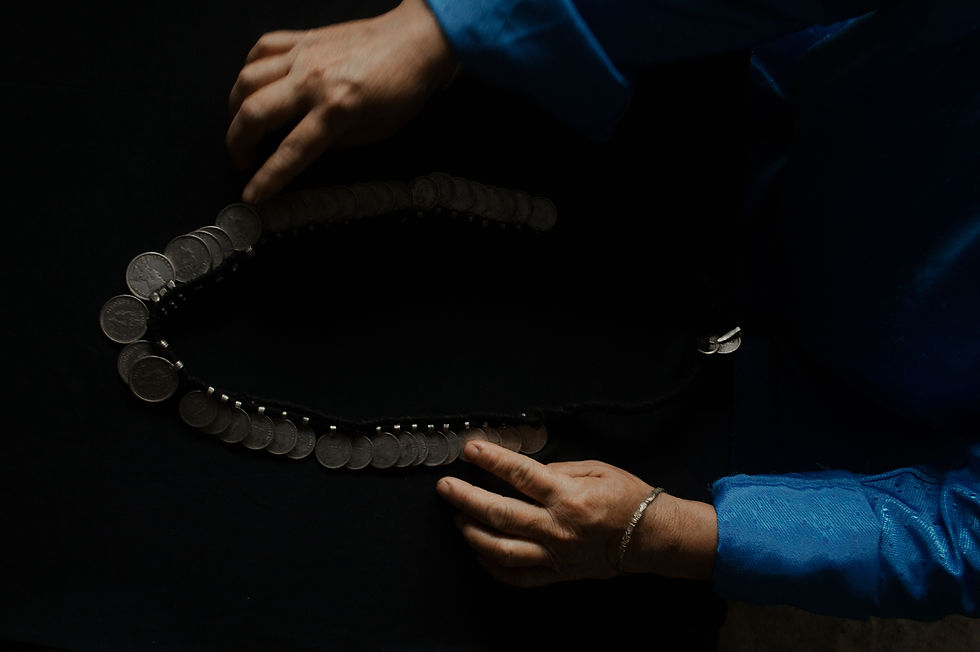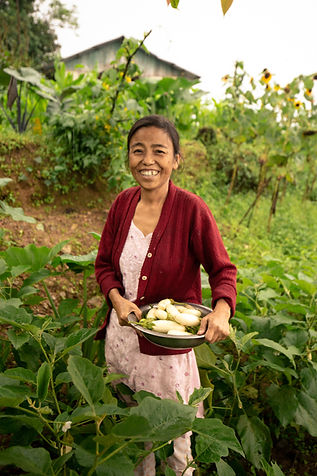
Introduction
Lepcha Trails, an initiative by Muhaan and Moonbeam Farmstay, is your gateway to unraveling the intriguing tales of Kalimpong's Lepcha community through crafted trails. These handpicked trails and locations offer a captivating window into various facets of Lepcha life, encompassing their daily routines, rich folklore, indigenous wisdom, culinary traditions, spirituality, and profound heritage. As one of the oldest indigenous tribes in the region, the Lepchas provide a unique perspective through which we aim to explore and gain a deeper understanding of Kalimpong.
Along this trail, we also pay homage to the memory of the esteemed Lepcha leader, Pano Gaeboo Achyok, who once called this land home and left behind his legacy in the form of timeless tales. Our inaugural program will unfold in the enchanting locales of Tunglabong and Lungsel, both chosen to showcase distinct facets of the captivating Lepcha narrative.
Join us in this transformative experience and uncover the living heritage of Kalimpong as seen through the eyes of its indigenous custodians

The Lepchas

Lepchas are one of the oldest inhabitants of Kalimpong and the history of the community is synonymous with the place’s history. The Lepchas or Mutanchi Rongkup Rumkup as they call themselves are the indigenous people who have been residing in the valleys of Sikkim and Darjeeling hills for a long time. The name Kalimpong is derived from the Lepcha word, Kalempung, a blend of the Lepcha word Ka which comes from Kayu meaning 'we/us', /em comes from lem means to play, and pung for ridge; therefore it means “the ridges where we play. Lepchas call themselves Mutanchi Rongkup Rumkup which means beloved children of Mother Nature or children of the Rong and of God Rumkup, Rum here means God and kup comes from the Lepcha word aakup meaning child or children


Tunglabung
A peaceful hamlet located in the Nim G.P of Gorubathan.The name Tunglabong is derived from the Lepcha word Tung-Lo-Buk, which in English means "TapiokaPlant",

Lungsel / Lungsyol is a secluded Lepcha village that got its name from the Lepcha words ‘Long’ meaning rock and ‘Syol’ meaning to spread. Lungsyol is believed to be the birthplace of the last king of the Lepchas Pano Gaeboo Achyok. The Chyakung gree (fort) atop the Chyakung lho or hill is a historical site believed to be the birthplace of the last pano.

Lungsel

The historical fort is believed to have been built by the King Pano Gaeboo Achyok in the 17th century to gain a strategic position to defend against attacks of Bhutanese intruders. It is considered that it was later occupied by the Bhutanese army briefly later again driven out by the attack of the British.
Dalim gree



The Hosts
MOONBEAM FARM STAY
Moonbeam Farmstay
Nestled within a century-old ancestral property, Moonbeam Farmstay is a haven of tradition and hospitality, lovingly managed by Farden Lepcha and his family. A testament to Lepcha warmth and charm, Moonbeam invites you to experience the true essence of Lepcha culture, embodied gracefully by Farden's aunts and uncles. Your journey at Moonbeam is incomplete without an interaction with Ondgen Lepcha, one of Farden’s Uncle who is Bumthing ( Lepcha Shaman) and a musician. Farden's aunts, keepers of Lepcha folklore, ensure evenings at Moonbeam are filled with captivating stories and cherished memories.






The Hosts
KURSONG ECO STAY
Kursong Eco Stay
Kursong Eco Stay is a run by Henstring Lepcha and his family. The family homestay takes its name from Kharsang which means orchid in lepcha language. Hen Tshering Lepcha, is a dedicated cultural conservationist and an accomplished Lepcha folk musician. He devotes himself to the preservation of Lepcha culture and language in his role as a cultural educator at Pano Gyabo Achyok Lepcha Primary School. He is always eager to share knowledge about his culture and will make sure you learn a few Lepcha words before leaving. One should definitely see his collection of Lepcha musical instruments and Lepcha artefacts.



Pano Gyabo Achyok Lepcha Primary School




